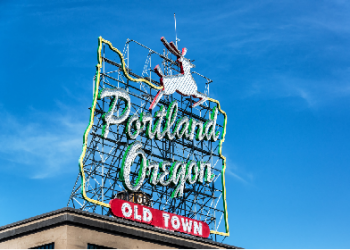FMCSA Regulations Governing Disabled Trucks are to Protect Other Motorists: Oregon Trucking Accident Lawyers
The trucking industry is an interstate business, meaning that it takes place across many different states. Because of this, it can be difficult to regulate the conduct, equipment, and other elements of commercial trucks and truck drivers. This is why there is a federal agency in charge of promulgating regulations relating to the conduct of truck drivers and trucking companies. The Federal Motor Carrier Safety Administration (FMCSA) has created many different regulations which apply to commercial trucks and truck drivers. One of the most important sections of regulations include those governing disabled trucks. Our Oregon trucking accident lawyers share the dangerous, regulations, and liability regarding disabled trucks and FMCSA violations.
Why are Disabled Trucks so Dangerous?
Commercial trucks like 18 wheelers, tankers, logging trucks, delivery vans, and other box trucks are huge. They are hard to miss given their massive size. However, it is actually very common for disabled trucks to pose a very serious risk to other motorists. This is particularly true during inclement weather such as rain, snow, sleet, fog, or other weather vents. And it is even truer during the night, especially on dark roads that are not well-lit or lit at all.
When a large commercial truck is in the shoulder of a roadway at night or during inclement weather, it is a hidden trap. It is simply not expected to be there. But when that truck is sticking out into the right-of-way or even blocking a lane of travel, a disabled truck is a very serious threat and hazard to motorists. Indeed, it is not uncommon for innocent drivers to t-bone, rear end, or otherwise collide with a disabled truck. Since these trucks are massive and very heavy, it is usually the innocent person that is injured.
FMCSA Regulations Regarding a Disabled Truck
The FMCSA recognizes how dangerous disabled trucks really are to other motorists. This is why the FMCSA has promulgated an entire section of law just to disabled trucks. The goal is to make disabled trucks less dangerous by increasing their visibility and warning oncoming traffic about their presence.
The important section of law is 49 CFR section 392.22 which creates two important responsibilities of a truck driver of a disabled commercial vehicle. First, as soon as a commercial truck becomes disabled the truck driver must immediately turn on his or her vehicular hazard warning signal flashers. This is done to immediately warn all other vehicles coming from either direction that there is a commercial vehicle there. Second, a truck driver must within 10 minutes of being disabled place certain warning devices. Under the sections, the warning devices or signals must be placed in the following locations:
- 4 paces/10 feet from the disabled truck towards oncoming traffic;
- 40 paces/100 feet from the disabled truck towards oncoming traffic; and
- 40 paces/100 feet from the disabled truck towards approaching traffic.
Warning devices and signs could be reflective signs or triangles, flares, flashing signs, or other warning devices that clearly indicate there is a hazard coming up.
Disabled Truck Liability for Violating FMCSA Regulations
When a commercial vehicle violates a FMCAS regulation that is meant to keep other people on or around the roadways safe, the truck driver and trucking company may be liable for the Oregon trucking accident. A victim may even use the violation of an FMCSA regulation as evidence of negligence against the truck driver and trucking company under the doctrine of negligence per se. This is a powerful doctrine which allows a victim harmed by the violation of a statute or regulation meant to protect them.
If you or a loved one have been seriously injured or killed as a result of a trucking accident or collision contact the Oregon Truck Accident Lawyers at Kuhlman Law at our number below or fill out the intake form. We offer a free initial case evaluation and handle cases on a contingency fee which means that you pay no money unless we recover.
We handle cases throughout the state including Bend and Portland Oregon, Redmond, Central Oregon, Multnomah County, Deschutes County, Salem, Eugene, Corvallis, Lane County, Medford, Gresham, Albany, Medford, Beaverton, Umatilla, Pendleton, and Hillsboro.
We also have an office in Minneapolis, Minnesota and take Trucking accident cases throughout the Twin Cities, including St. Paul, Hennepin County, Ramsey County, Dakota County, Washington County, Anoka County, Scott County, Blaine, Stillwater, and Saint Paul Minnesota.
Please act quickly, there is a limited time (Statute of Limitations) in which you can bring a claim under the law.



